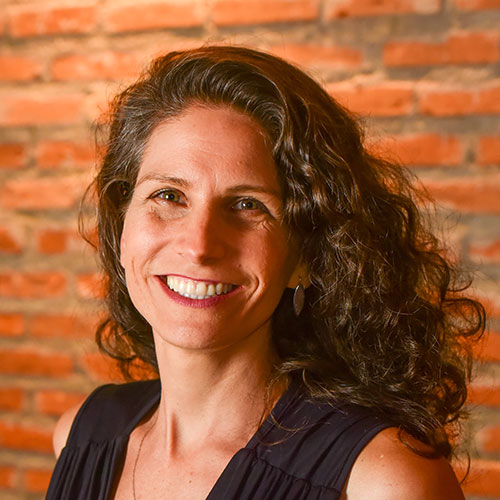Black representation and parenting is the central theme of Coletivo Pais Pretos Presentes
The group emerged to support black parents and quickly became a reference in the debate on racial literacy and family relationships.


Humberto Baltar had just become a father when he suggested the creation of the Coletivo Pais Pretos Presentes. He was looking for a space where he could share the taskss and anxieties of being a father of a black child. He did not imagine, however, the urgency and scope of this need. Quickly, the discussion on parenting and black representation grew and the group became a national reference on the subject.
With an estimated audience of 90,000 people, the Coletivo Pais Pretos Presentes has become a social enterprise with education, communication and ethnic-racial, parenting, divergence and masculinity consulting services. The consulting activities involve lectures, events, mentoring, courses and training. Among its clients: 3M, Johnson & Johnson, Cognizant, Vivo, Itaú, BNG, Credit Suisse, and others.
The group, which maintains partnerships with schools, Unicef, the Public Ministry and third-sector organizations, also contributed to the first report on black paternity in Brazil, elaborated by the Instituto Promundo, and was called upon to collaborate with public policies aimed at men’s health black. Currently, all this work is moderated by 16 people from Coletivo.
The secret to the success? According to Humberto, there is a lack of racial repertoire in Brazil with accessible information about African ancestry, black authors, and Afro-Brazilian culture. Additionally, the emotional relationship established between men and children is also undergoing a transformation that is not being discussed:
“Even my father being a good provider, he didn’t talk to me about feelings, doubts, and anxieties. There wasn’t this emotional dimension, and when my son was born I felt unsure if I could be an affectionate father, because in our culture it’s often said that we can’t give what we haven’t received,” he says.
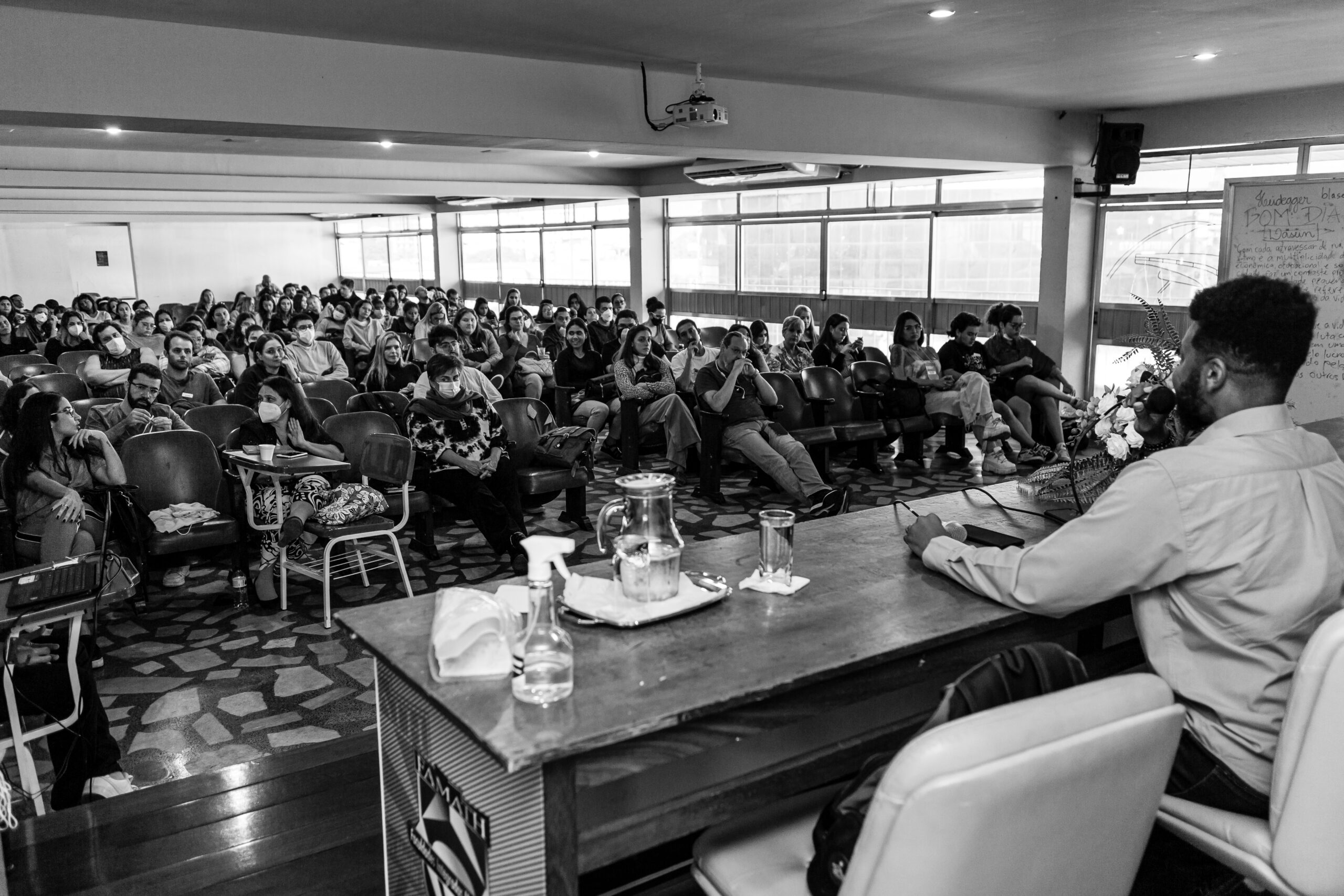
From networks to companies
The group began in an unpretentious way through social networks, in 2018: “The racial issue was seen as victimism among the white parents and I did not find acceptance in the paternity groups that already existed, so I asked on Facebook if anyone knew a black father present to introduce myself and the publication had a wide reach”, remembers Humberto.
From Facebook, the group moved to WhatsApp, and there the discussion found an echo, not only among parents, but also among mothers, interracial families, educators and other people who wanted to know more about parenting and racial literacy. The group, which at first appeared to be just a chat space, has become a true support network.
“When we created the Whatsapp group, a father said that his four-year-old son didn’t want to go to school because he had heard from his classmate that he didn’t like to sit next to a black boy. On the same day, another father commented that he had lost a five-month-old baby and complained that everyone welcomed the mother, but nothing for him”, he recalls.
The impact of the exchanges led to the formation of new groups: Pais Pretos Presentes, Mães Pretas Presentes, Pais e Mães Pretas e Pais e Mães dos Pretinhos. In 2020, with George Floyd’s murder in the United States, a broad anti-racist campaign broke out worldwide, including Brazil, and Baltar also began to be sought by companies to talk about the racial issue with employees.
Below, we separate the main excerpts from the Lupa do Bem interview with Humberto Baltar, creator of Coletivo Pais Pretos Presentes. Check it out!
African ancestry
“Education has become the axis of Coletivo. There is no way to escape Africa, from people who are important to African culture and to Afro-Brazilian culture. We also need to look at the affective dimension of the black man. Male chauvinism in the West has kept men away from care and this has nothing to do with African culture, which is matriarchal in nature, where women are central.
In the Dagara people of Burkina Faso, for example, the woman looks for food, water, etc., while the man is the father. This idea of the man being distant from care is from Western. And as the Brazilian black man does not know his own culture, he ends up assimilating it. Patriarchy is not the place for the black man, it never was.”
Aquilombamento and black representation
“One of the pillars of Coletivo is the Quilombamento, which is the gathering of black people to talk about their pain. In Brazil there is no place for that. The school does not offer this space, nor the company and the church much less. The church says that Africa is the place of the devil, an evil spirit. So where can the black person talk about their racial pains?
There is also the issue of representation. In 2019, we created an Instagram account to share photos of families participating in the group people enjoying their moments, and we received several messages of thanks. I had no idea that black people were not used to seeing themselves in a place other than criminality, subalternity and invisibility…”
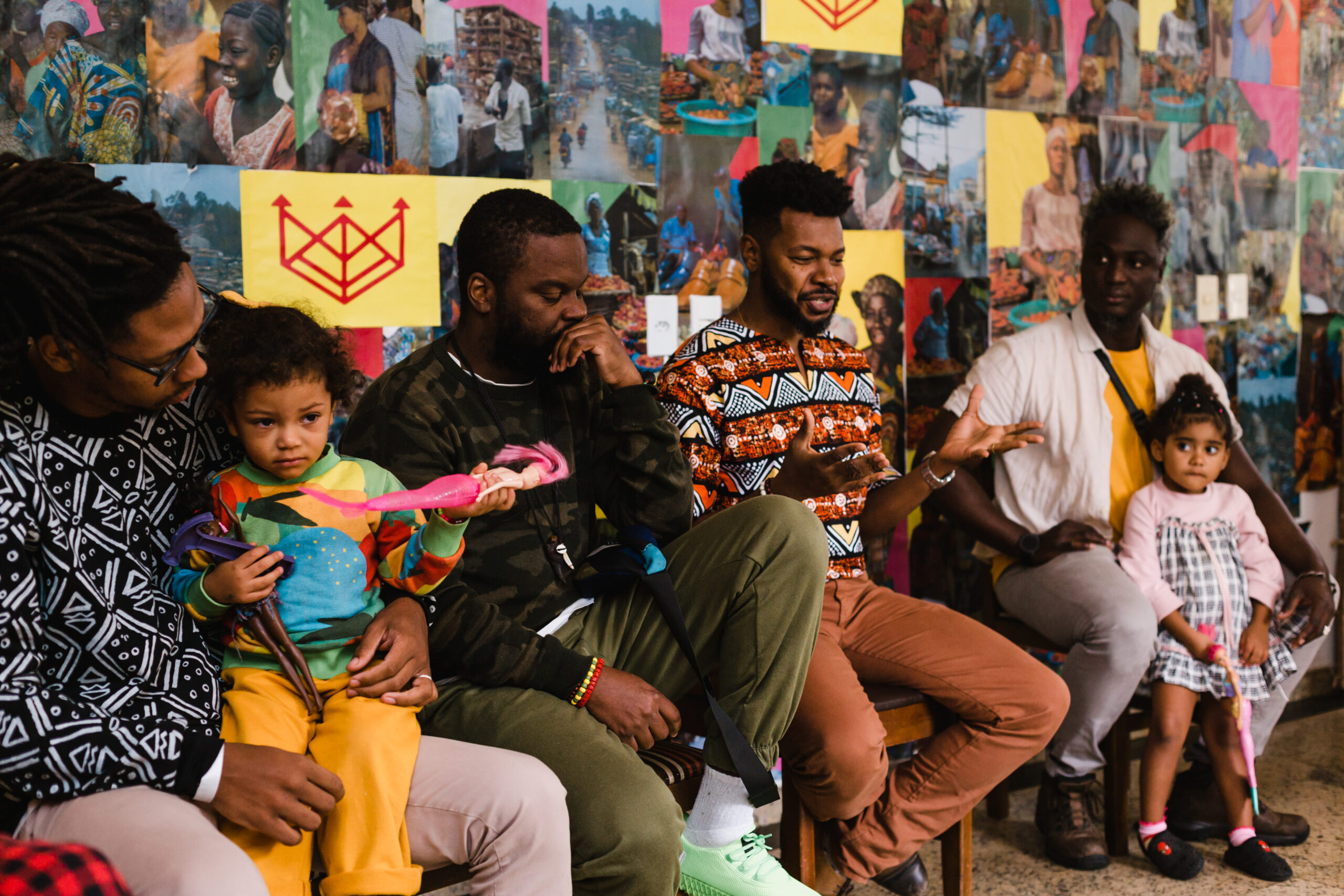

Access to education
“My godmother was a university professor at Pedro Ernesto Hospital, at the University of Rio de Janeiro (UERJ), and when I turned seven years old, she signed me up for the UERJ College of Application draw. By coincidence, the number of subscribers was the same as the vacancies, there was no draw and I entered. It totally changed my life!
That opportunity is what allows me to be here talking to you today. I had a differentiated schooling, the teachers at College of Administration are all university professors. Consequently, I was approved for the entrance exam at UERJ with ease, I studied Literature.
Education was very important. My godmother also enrolled me in Cultura Inglesa course. I studied there from 12 to 19 years old and I was always the only black student in the classroom. This was painful in several dimensions, because racism was not an agenda in the 80s and 90s and I had to swallow several jokes, dry attacks, a lot of bullying…
When I finished the course, I opened an English course for black people [Baltar is an English teacher and he continues to work in the profession]. Only today I did manage to understand the various pains I experienced in the past: they were racial pains.”
Racial literacy
“Law No. 10,639 [which includes the mandatory inclusion of Afro-Brazilian History and Culture theme in the official curriculum of the municipal education system] is still not enforced in Brazil. Therefore, we have some projects in this direction. The program ‘Meu Filho me Ensina’ brings lessons that our children present through the lens of African ancestry, which sees childhood in a completely different way.Regarding the Dagara people in Burkina Faso, there is a ritual to get to know the child, their vocations, abilities, and inclinations. The ritual is even done for discovering the name. Unlike the West, where there is the idea that parents will fill the child’s life with meaning, a career, and even a gender, this belief that the child arrives empty does not exist in African ancestry. The child already arrives fully formed in this world.”
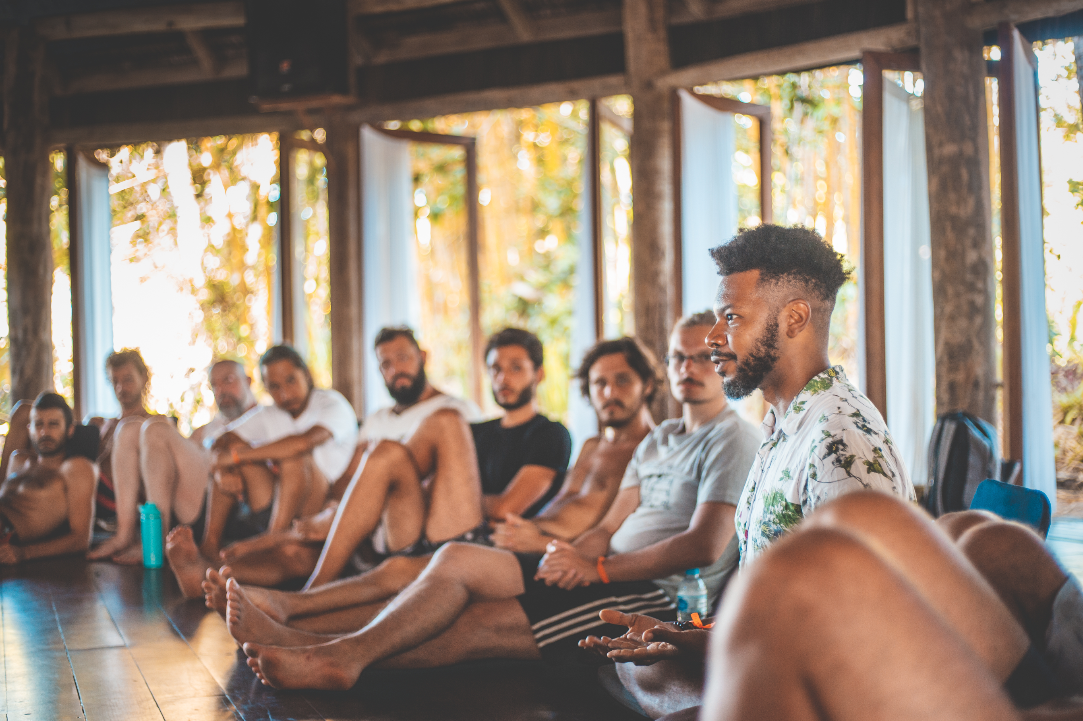

Afro-referenced Parental Education
“The parental education that we use to see, which talks about positive discipline, nonviolent communication, and attachment parenting, are theories that, although important, neglect ethnic and racial specificities. For instance, you can’t tell a black mother or father, ‘You have to kneel to talk to your child, be at the same eye level so that they can see you as equal.’
This person might have been raised by an alcoholic father who slapped them, they might have grown up in an environment of violence. So, you come in thinking it will be easy, that it’s simply a matter of kneeling and talking at eye level. It might sound wonderful in theory, but it doesn’t resonate with the reality of many black, poor, and marginalized families, who were shaped by abuse, invisibility, and sometimes even criminality.”
Childhood
“My childhood was in a space of 12 square meters, the maid’s room where my mother worked. It also happened to me… My mother got pregnant, and my father tried to stay with her, but it didn’t work out. They got divorced, and she went looking for a job. She started working as a domestic worker in a woman’s house in the Tijuca neighborhood.
I grew up in that house, it was my world from age 1 to 11. I had to ask for permission to open the fridge, have a soda, turn on the TV, and play videogames. It was almost a symbolic indigence… To exist, I had to ask for permission. I only recently understood the impact of this in therapy.”
African Proverbs
“African proverbs, adinkras*, itans** [from Yoruba culture], provide an extensive repertoire for the black population to connect with the people who existed before them. They bring values and principles, and through them, it’s possible to present black culture respectfully, showing that being African isn’t just about a person in a loincloth chasing after a fire as taught in schools.
The Adinkra Menso Wo Kenten says, for example, ‘I won’t carry your load.’ The meaning is wonderful: in work and in life, it’s important to focus on our own path because, ultimately, no one else can do that for us. In other words, you should determine who you are, how you work, what you bring, what your purpose is, and not simply do what others tell you!”
Because in Brazil the image that was built around the black person is that they came from a continent that only has misery, poverty, disease, death, etc. That has nothing to add. Then the black person believes in that, sees himself as symbolically inferior… Frantz Fanon has a very rich work talking about it in the book Pele Negra, Máscaras Brancas.
Here in Brazil, Neusa Santos Souza deepens this guideline in the book Tornar-se Negro, where she shows that black people who ascended economically and socially in Rio de Janeiro in the 1970s did not get rid of the ethnic-racial ills they used to suffer. Even when changing neighborhoods and classes, oppression, exclusion, racism and invisibility continued.”
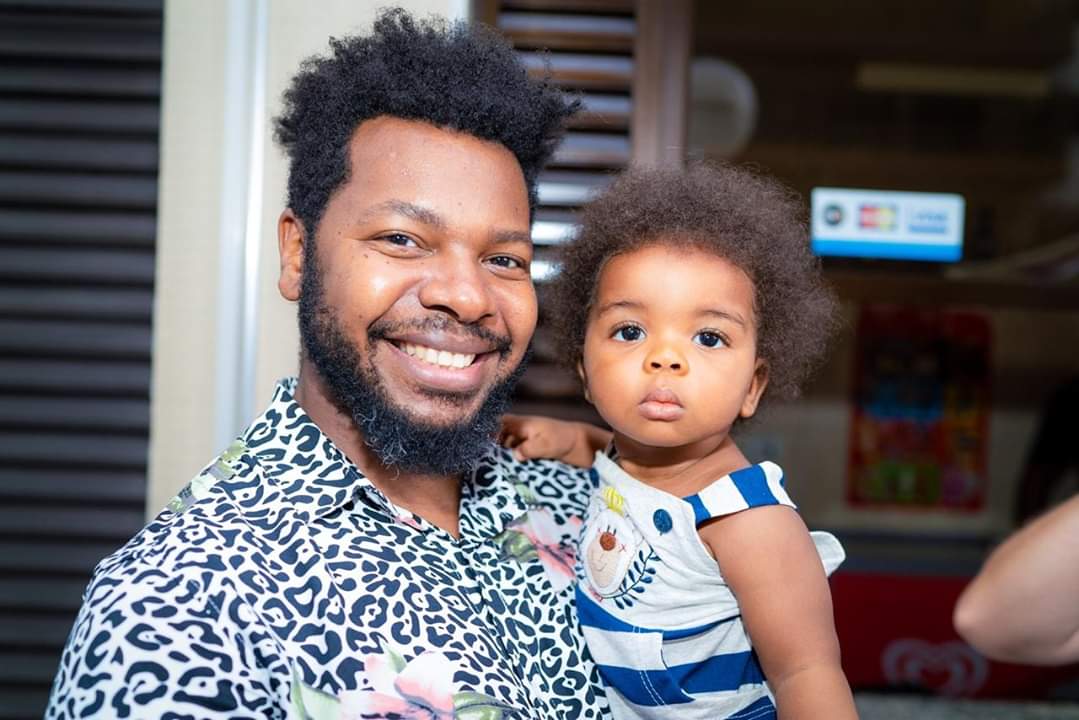

Paternity leave
“I was called to talk about paternity leave at a company, because they noticed that they had extended paternity leave from 20 to 40 days and, even so, many fathers returned to work with five days of leave. We went to investigate why and, exchanging with collaborators, we discovered two main causes: the first is that many men were afraid of being fired after being away for so long.
The second was the non-place of care given to men. We, as men, are not socialized to care. And when a man takes paternity leave, he doesn’t know how to bathe the baby, he doesn’t know how to change a diaper, he doesn’t know how to deal with colic in children, because he wasn’t taught that. And the man, for understanding that masculinity is the place of self-affirmation, information, strength and everything else, also does not seek to approach this repertoire.”
Female emancipation
“Coletivo has become a national reference in the education of black families because the work that started with parents turned into family work. And that has a reason. African ancestry understands that there is no male emancipation detached from female emancipation. In Brazil, when talking about gender, everyone thinks of feminism, but Africa introduces us to African womanism, which is governed mainly by the principle of unity, called Umoja.
No wonder most civilizations on the African continent are matriarchal. There are many black fronts that reproduce machismo, patriarchal values, and this is a contradiction. I understand that African countries were also colonized and that there is machismo in Africa. But not looking at gender is the biggest mistake that organizations focused on racial literacy can make.”
Baptism
“Historian Runoko Rashidi has shown that we have names and surnames given by rapists and looters of black African peoples. If today you carry a Silveira, Oliveira or another name of a guy who raped your great-great-grandmother, then why not adopt an African name for yourself that you identify with? When I heard about this, I thought: ‘it is no less legitimate to rename myself’ [Baltar adopted two African names that he uses on specific occasions].
This movement has been growing in Brazil, with several black people giving their children and themselves an African name… It is possible to go to the registry office and be renamed, it is a right that we all have, so this ancestral rescue is very cool. It allows us to be proud of our history, and pass it on to our children.
Today, for example, children wear dreadlocks, black hair and they see beauty in that… in my day I had to shave my hair on machine two because the school discourse was that big curly hair gave lice. My mother, a humble person, a maid, did not question the teacher. Today, if a teacher doesn’t let the child have her hair the way she wants, she can end up in the police station, accused of racial slurs.”
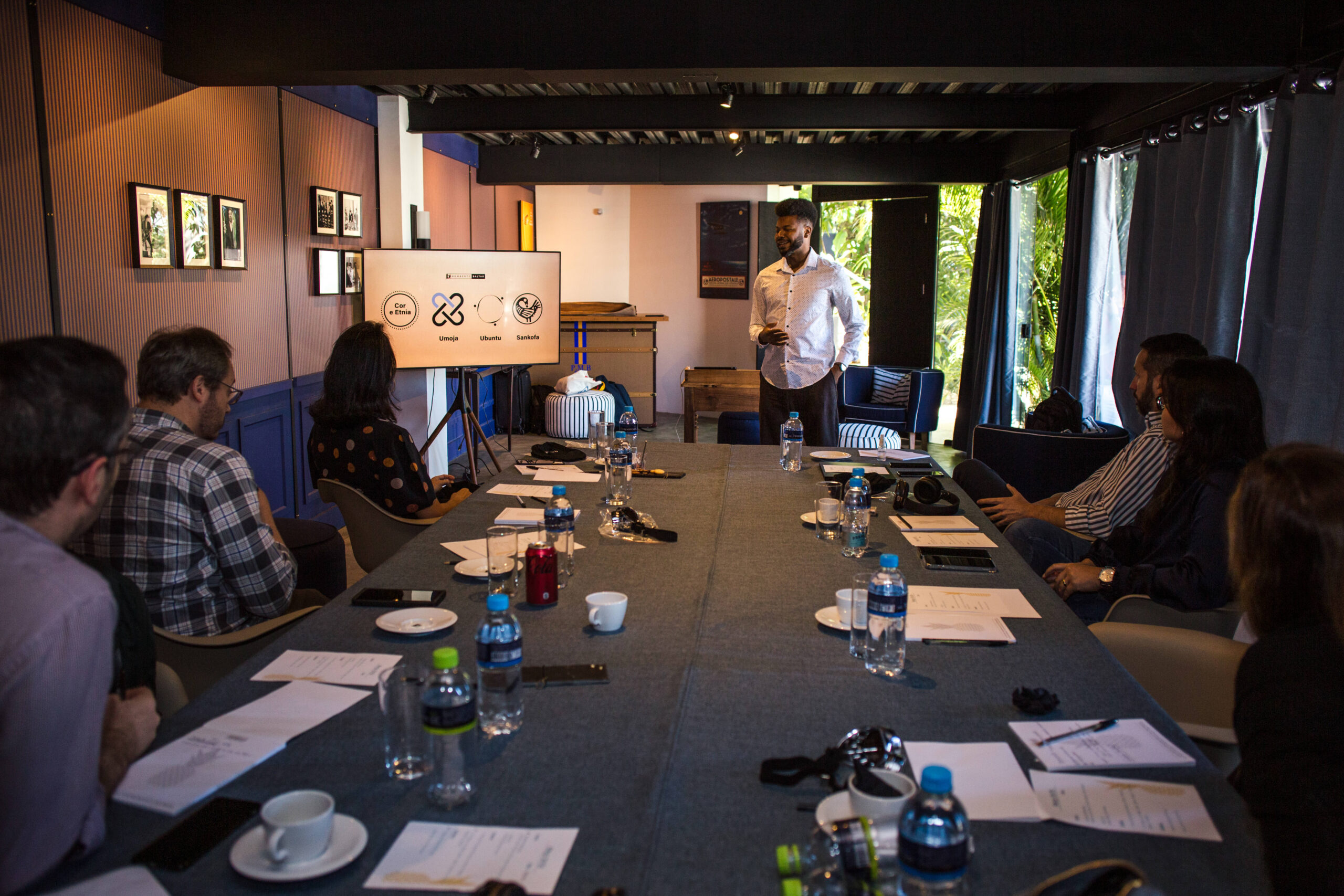

Rescue of culture
“When I was young, I discovered that my mother didn’t know her grandparents, only her parents… I started to try to understand why and she said that at the age of 10 she was already working in a family home, washing and ironing. That is, she had no childhood. We blacks don’t have the right to childhood. Even today we see children selling sweets at traffic lights, working at street markets, etc.
That is why it is essential to bring principles such as adinkras, itans, to bring this ancestral and spiritual literacy, because it is through these values and knowledge that we can recover the pride of being who we are. Because that doesn’t reach us via school or university, it’s the Coletivo, some people on the Internet, on YouTube who share. As Fanon says, a sense of belonging is essential to having a sense of worth…
So it is necessary to rescue the culture, but sometimes it is simply not possible, because history has been lost. When a black person listens to a white person talking about what their great-grandfather taught, about his culture and they don’t even know who their grandfather was, it has a terrible impact on their self-esteem, self-image, psyche. It’s very serious.”
Challenges
“Many people learn African culture with a whitened eye. So we need to talk about this. The black person has this extremely negative perception of Africa, of African ancestry, and dismantling this logic is the central work of the Coletivo. Racism is an offshoot of coloniality. This is the main challenge. If we keep trying to fight racism without looking at its origin, then it’s no use!”
* Adinkra are Ghanaian symbols that represent concepts or aphorisms. They are widely used in textiles, logos and ceramics and incorporated into walls and other architectural features.
** Itan is a Yoruba word that means story, any story; A tale. More specifically, itan are stories from the Nagô system of consulting the deities.
Want to support this cause?
Follow the social networks of Pais Pretos Presentes on Facebook, Instagram, Twitter and Linkedin. To collaborate, it is possible to make donations via direct on social networks.
